Stonehenge solstice: Number of revellers falls by half
- Published
Thousands mark summer solstice at Stonehenge
Crowds who gathered at Stonehenge at dawn to mark the summer solstice were down by about half this year, English Heritage said.
It said about 12,000 people attended the neolithic site in Wiltshire to watch the sun rise at 04:52 BST.
The figure was well down on the estimated 23,000 who attended last year, while 25,000 had been expected.
Organisers said low attendance was due to the event falling on a weekday and not as a result of an alcohol ban.
The lead-up to the event also coincided with international football games involving England and Wales, and this may have had an impact, organisers conceded.
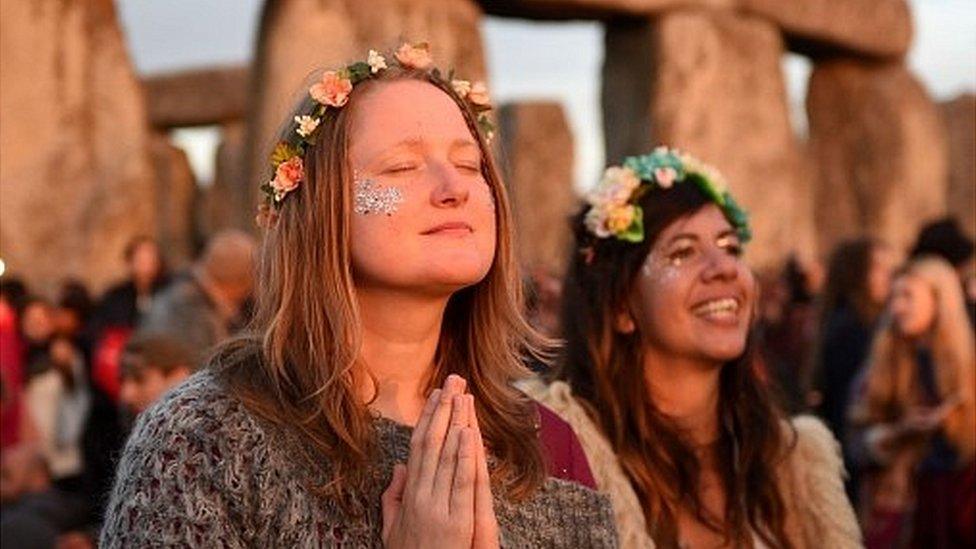
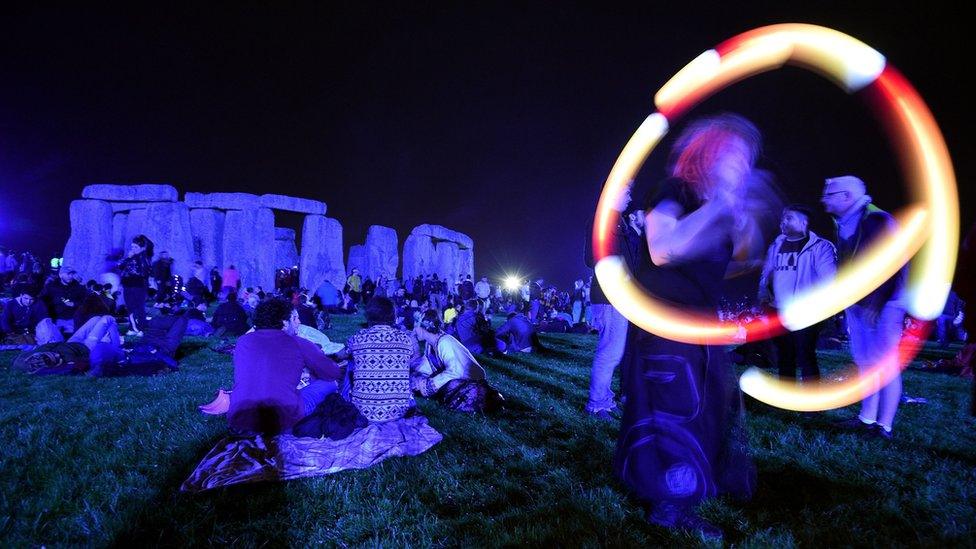
This year's solstice celebrations saw revellers facing a ban on alcohol and drugs for the first time
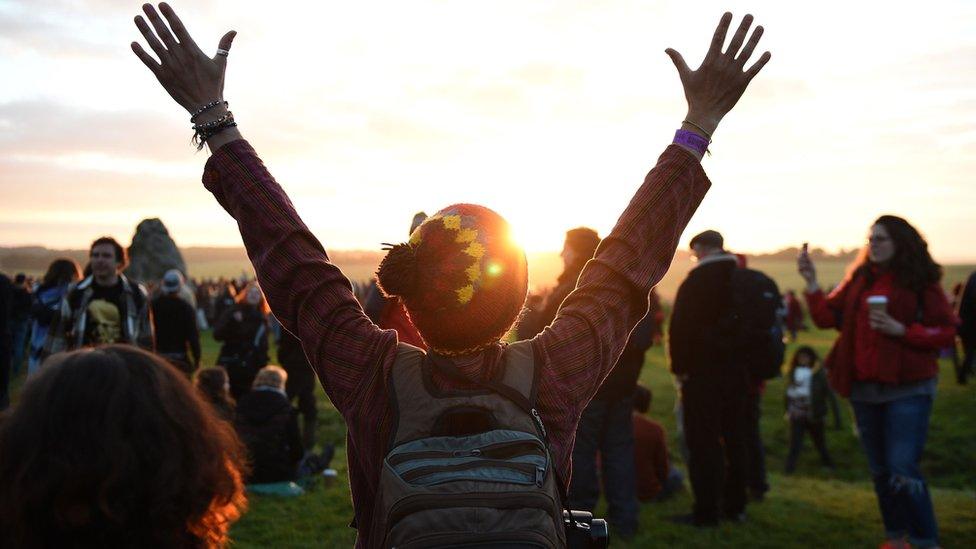
Sun rise was at around 04:52 BST
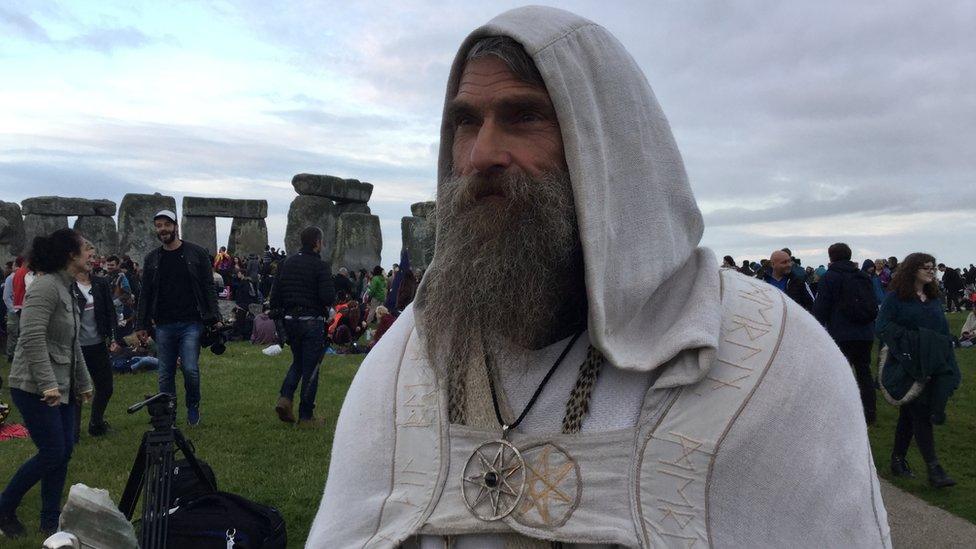
The summer solstice usually occurs on 21 June, but can occur on 20 and 22 June
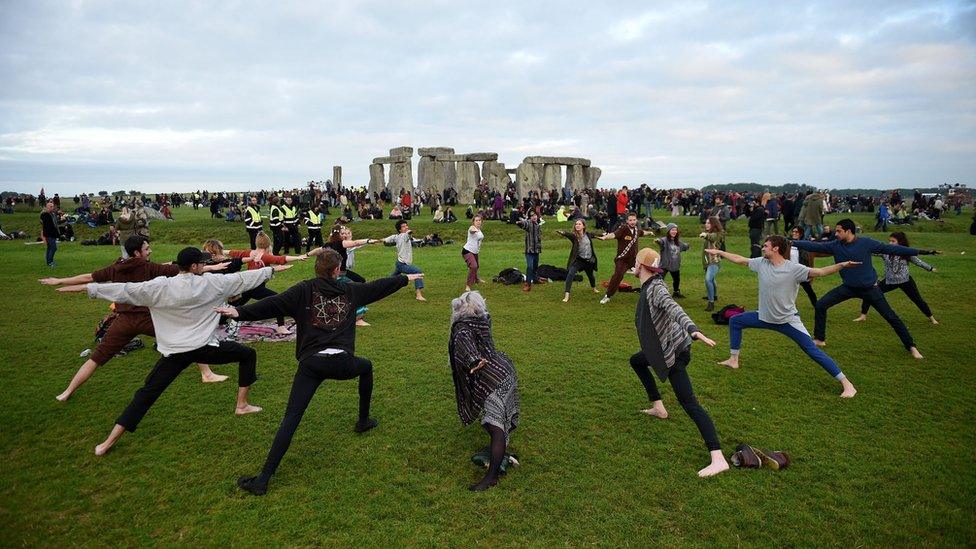
Wiltshire Police said the celebrations were "positive and peaceful"
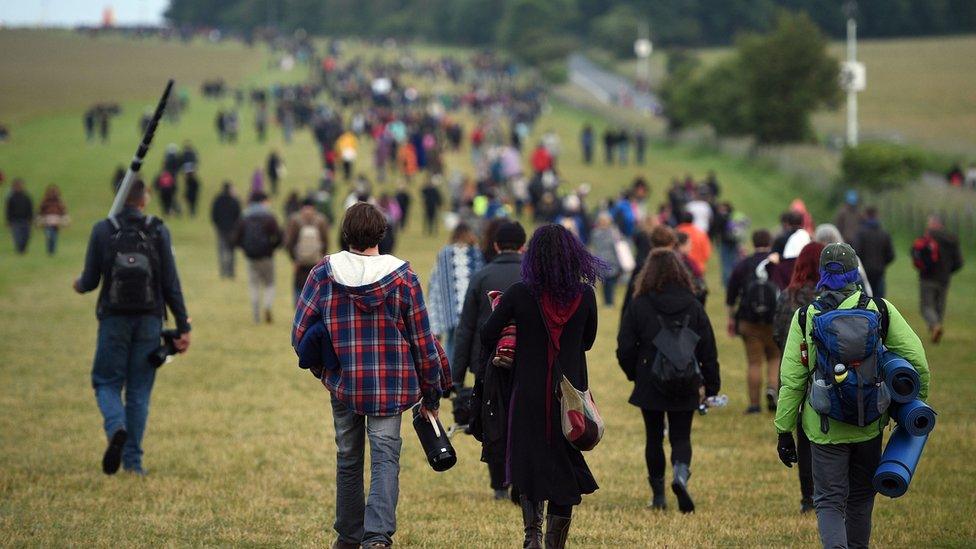
Kate Davies, Stonehenge general manager, said it was "really happy with the number of attendees"
This year's solstice celebrations saw revellers facing a ban on alcohol and drugs for the first time, in a bid to curb "drunken and disrespectful behaviour".
A £15 charge per vehicle was also introduced by EH to encourage more people to car share or travel by bus.
Merlin, an archdruid, described the charge as an "unnecessary profit-making enterprise".
"A lot of the people, they're not rich people, they're quite poor most of them, and [English Heritage] make millions already," he said.
But Kate Davies, Stonehenge general manager, said it was "really happy with the number of attendees".
"It's a Monday night, so we knew it was going to be quieter because that's what traditionally happens on a weekday," she said.
'Weather and football'
"We also had terrible weather earlier yesterday - that would definitely have put some people off and there were also a couple of big football matches last night, so again some people may have chosen to stay at home."
Wiltshire Police said the celebrations were "positive and peaceful" with two arrests, including a 24-year-old man who was arrested on suspicion of sexual assault.
Supt Mark Sellers said: "These changes for Solstice 2016 have proved a great success, with people celebrating at Stonehenge in a positive, friendly atmosphere as they waited for the sunrise."
Up to 400 people also enjoyed the solstice at the nearby Avebury stone circle, where police said the atmosphere was "jovial" and there were no arrests.

Pagan festivals: Summer solstice
• Solstice, or Litha, means a stopping or standing still of the sun
• The summer solstice is the longest day of the year and is celebrated by thousands of pagans across the world. In the northern hemisphere, the solstice usually falls around 21 June
• Stonehenge is believed to have been used as an important religious site by early Britons 4,000 years ago. Recent pagan celebrations at the site began in the 20th Century
• On Litha, the central Altar stone at Stonehenge aligns with the Heel stone, the Slaughter stone and the rising sun to the north east
Why do my days get longer and shorter?
- Attribution
- Published20 June 2017
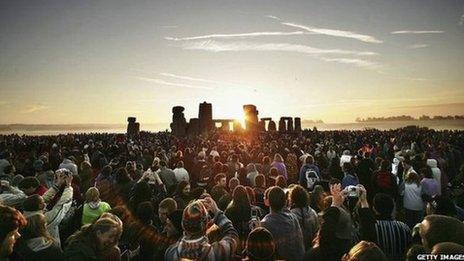
- Published13 June 2016
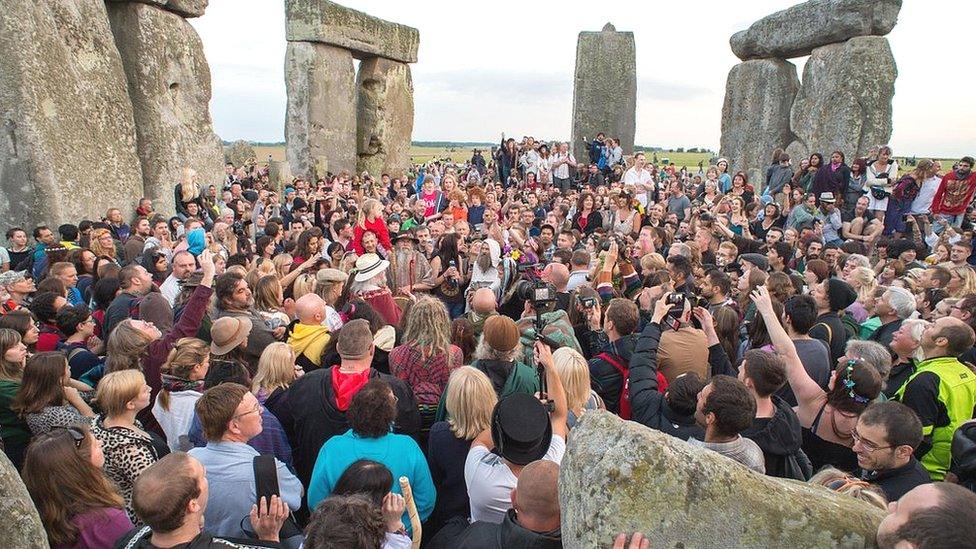
- Published19 May 2016
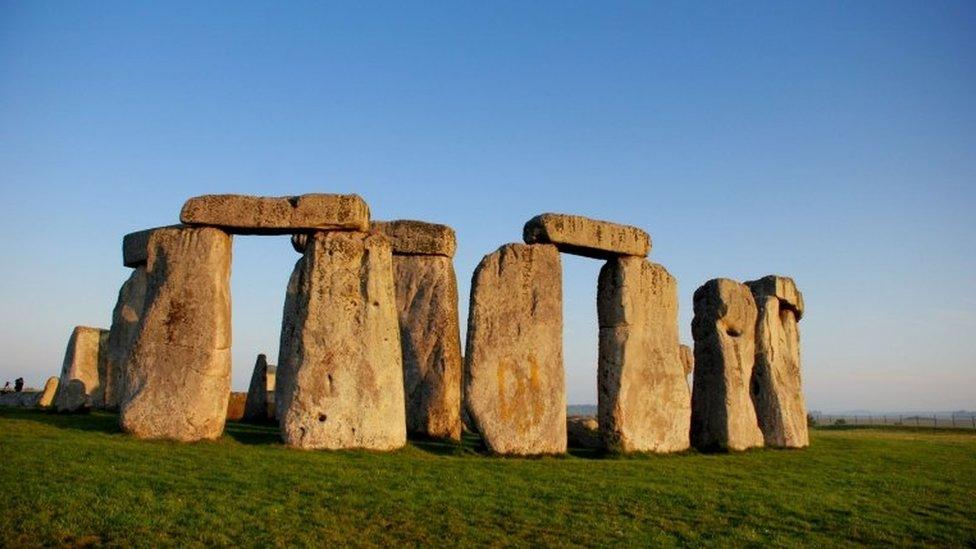
- Published19 May 2016

- Published7 April 2016
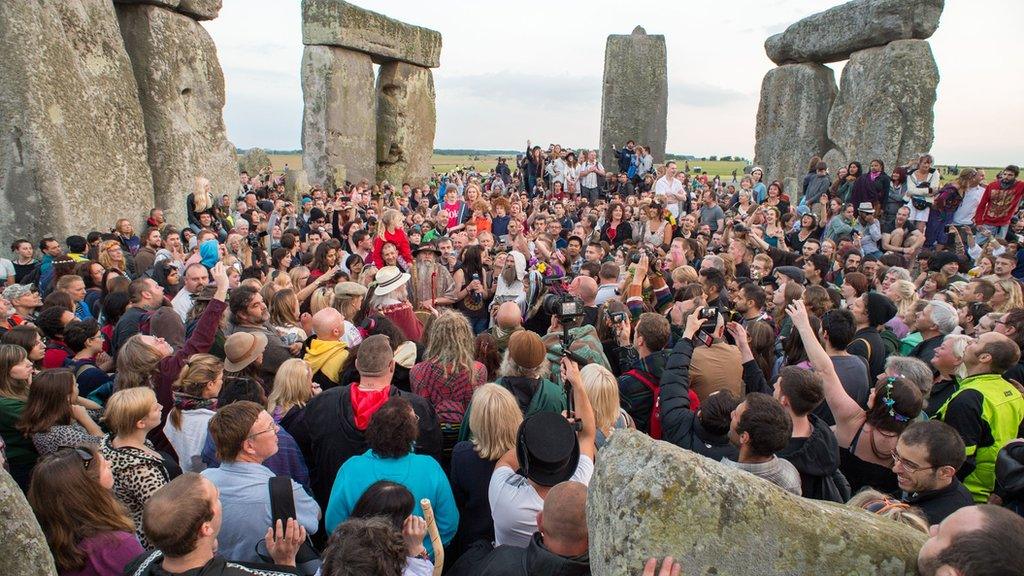
- Published5 February 2016
